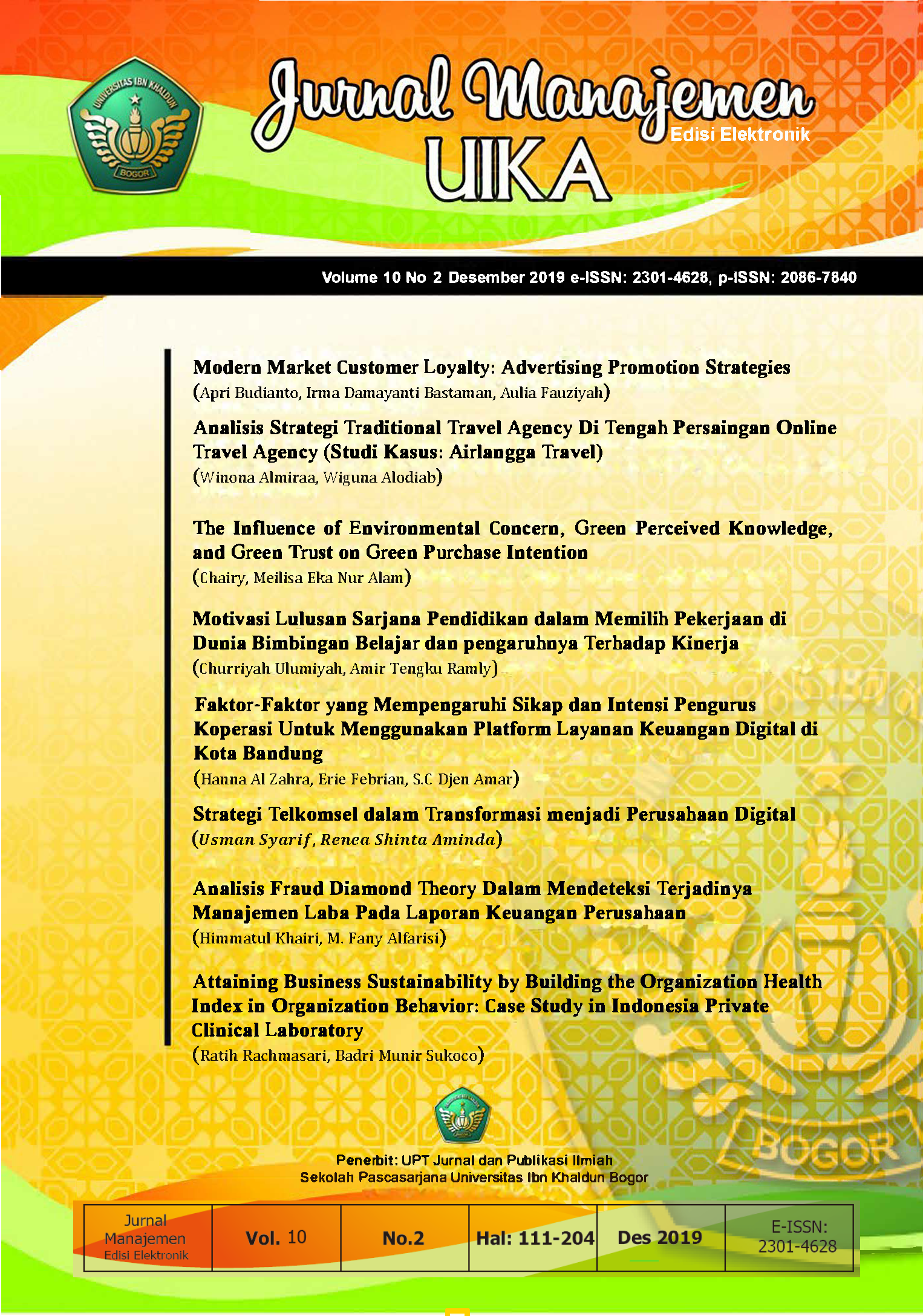Analisis Strategi Traditional Travel Agency Di Tengah Persaingan Online Travel Agency (Studi Kasus: Airlangga Travel)
DOI:
https://doi.org/10.32832/jm-uika.v10i2.2553Keywords:
Porter Analysis, SWOT Analysis, Business Strategy, Competitive AdvantageAbstract
The travel industry in Indonesia is still very attractive, especially when considering the large population of Indonesia and the growing value trend of the travel market. However, the development of information technology and the internet has had an impact on the proliferation of Online Travel Agencies (OTA), resulting in high levels of competition in the travel industry. Traditional travel companies must continue to innovate to maintain their presence in the competition. This research was conducted to analyze the competitive conditions of the travel industry in Indonesia, a case study at Airlangga Travel company. The research method uses Porter and SWOT analysis. The results of the study are recommendations for differentiation strategies for Airlangga Travel in order to survive in the intense competition of the travel businessReferences
BPS. (2018). Statistik Indonesia 2018. Katalog Badan Pusat Statistik.
Hitt, M. A., Ireland, R. D., & Hoskisson, R. E. (2017). Strategic Management: Competitiveness & Globalization: Concepts and Cases, 12th Edition. Singapore: Cengage Learning Asia Pte Ltd.
IDN. (2019). Indonesia Millennials Report 2019. IDN Research Institute.
Kotler, P., & Armstrong, G. (2016). Principles of Marketing, 16th Global Edition. United States: Pearson Education Limited.
Lim, G. S., Chua, S. B., Usa Skulkerewathana, & Daft, R. L. (2014). New Era of Management in a Globalized World: An Asian Perspective. Singapore: Cengage Learning Asia.
Ranjith, V. K. (2016). Business Models and Competitive Advantage. Procedia Economics and Finance. Vol. 37 (203-207).
https://dailysocial.id/post/indonesia-kuasai-ekonomi-digital/ diakses tanggal 8 agustus 2019
Downloads
Published
How to Cite
Issue
Section
License
Authors who publish with this journal agree to the following terms:
- Authors retain copyright and grant the journal right of first publication with the work simultaneously licensed under a Creative Commons Attribution-NonCommercial-ShareAlike 4.0 International License that allows others to share the work with an acknowledgement of the work's authorship and initial publication in this journal.
- Authors can enter into separate, additional contractual arrangements for the non-exclusive distribution of the journal's published version of the work (e.g., post it to an institutional repository or publish it in a book), with an acknowledgement of its initial publication in this journal.
- Authors are permitted and encouraged to post their work online (e.g., in institutional repositories or on their website) prior to and during the submission process, as it can lead to productive exchanges, as well as earlier and greater citation of published work (See The Effect of Open Access).











